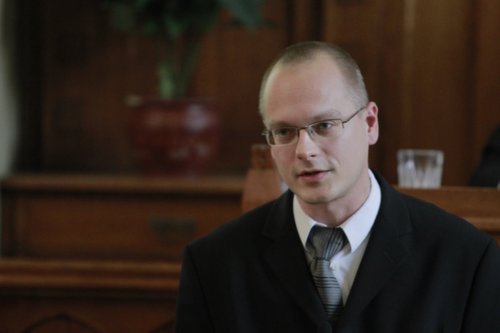"... solemnly charge them in the presence of God not to wrangle about words, which is useless and leads to the ruin of the hearers.!" (2 Timothy 2, 14)
What is reformation? Is it a revolutionary renewal movement? Is it a protest and objection against something? Is it a "No, just because..!" kuruc behavior? Those – who know the history of the Reformation – can easily realize it is none of them. The blame of incendiarism and demolition was always refused by the reformers; they struggled to refute it in all of their confessions, writings and actions, in an extremely violent and tumultuous world. They were seeking and hoping, on the basis of rediscovering the Gospel, the benefit, edification and peace of the church and society. As we are getting closer to the Celebration of the Reformation, for us – who are searching for opportunities of the mission, understanding and living-out of the evangelical Christianity – this effort cannot merely be confined to defiance, congregational contests, objections, selfish transformations and alterations.

The commentary of the above passage is typical of the whole reformation, especially of Calvin: "Away with all speculations, therefore, which produce no edification!" Calvin's entire theology and hermeneutics is in harmony with Paul's precept about building congregations. He was always aspiring after that which builds, instead of those things that are wrecking, destructive, useless, and redundant quibbling.
Today, what typifies our church-life? What typifies our scientific life? What typifies our common life? What typifies our congregations, services, family and our private life? These are not easy questions in the aspect of Reformation, even in the aspect of Holy Scripture. The uselessness, emptiness, selfishness could be as wrecking as someone intentionally aspiring to destroy something or someone. Five centuries ago, the Reformation helped us to understand from the Gospel to always look at those things that are constructive. No doubt: if a house is in ruin, we must demolish and clear it to be able to rebuild again.
It is undeniable that it is easier to demolish than to build. It is also much easier to hurt someone with a word, a gesture, than it is to recompense with a thousand words or acts. It is simpler to poison a community with vain arguments, belligerence and suspicious approach, than to recuperate, rebuild and restore it later. Construction is our mutual goal and our common mission. More than this, we believe that God is the One who builds.
Translated by Krisztina Forró and Amy Lester